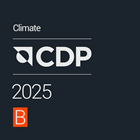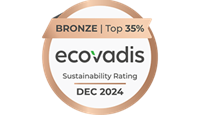Building a law firm for the future
We believe that the law firm of the future will not only provide high quality legal advice to address the complex issues its clients face, but also demonstrate its commitment to responsible business practices in its own operations. For us, being a responsible business means acting with purpose – to embed sustainability across our operations as we work to build a sustainable future for our clients, our people, our communities and our planet.
We uphold the Ten Principles of the UN Global Compact and have aligned our Firm efforts with the Sustainable Development Goals (SDGs), which we see as a road map to achieve our vision of our Firm for the future, and an opportunity to collaborate with like-minded organizations to achieve our shared goals. Identified by a thorough materiality assessment, taking into account the values and opinions of stakeholders from across our entire value chain, our prioritized SDGs (as set out below) align to the core values that underpin not just our sustainability strategy but also our Firm strategy. We live by these values every day and we use them to guide our environmental, social and governance (ESG) efforts and commitments.

Our emissions reduction targets
|
The Science Based Targets initiative (SBTi) has approved Baker McKenzie’s near-term science-based emissions reduction targets:
|
 |
| CDP | EcoVadis | ||
| We report under CDP, earning a B grade for Climate Change in 2025, reporting on our 2024 emissions. |
 |
We also report under EcoVadis, earning a bronze rating in 2024, placing us among the top 35% of organizations assessed by EcoVadis. |  |
Strategic partnerships
In our mission to build a sustainable future, we have longstanding relationships with three strategic policy-shaping forums to share knowledge and shape future debate and policy, in furtherance of our shared goals.
United Nations Global Compact (UNGC)
We have been an active participant of the UNGC, the world's largest corporate sustainability initiative, since 2015. The representation in the UNGC of business, academia, government and civil society, and their contribution to shaping policy, makes it a unique platform that allows us to be on the cutting edge of sustainability trends and regulation. We are collaborating with the UNGC on the acceleration of transformational governance as members of the UNGC Think Lab on Transformational Governance which seeks to develop guidance and best practice to help the business sector action Transformational Governance through the targets of SDG 16 (Peace, Justice and Strong Institutions). As Co-Patron of the Action Platform for SDG 16, we worked closely with the UNGC to run country consultations to engage with key stakeholders on what SDG 16 means to their business. We also supported the development of the SDG 16 Business Framework tool, which helps businesses understand the role they can play in advancing SDG 16's objectives.
World Business Council for Sustainable Development (WBCSD)
In 2017, Baker McKenzie became the first law firm to join the WBCSD, a CEO-led community of over 250 international organizations. By providing legal advice for its sustainability projects and work streams, we are able to collaborate and lead on projects to drive awareness, make progress and shape future policy. In 2022 we became a member of the WBCSD-led Business Commission to Tackle Inequality (BCTI), a cross-sector, multi-stakeholder coalition of leaders with the mission of mobilizing the private sector to tackle inequality.
World Economic Forum (WEF)
Since 2010, we have been partnering with the WEF in its mission to engage political, business, academic and other leaders of society in collaborative efforts to improve the state of the world through public-private cooperation. Through our relationship with the WEF we focus on engaging the business community on sustainability issues and promoting collaboration, working with like-minded businesses to encourage deeper corporate engagement on sustainability initiatives, including through our annual presence at Davos.




